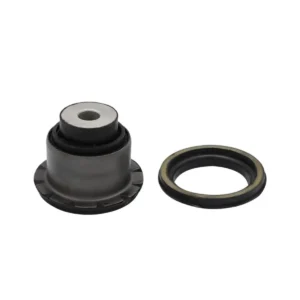You can contact us 24/7 +90 505 254 60 90
The best discounts this week
Every week you can find the best discounts here.
تعليق الكابينة، جلبة 9423100077
Kabin Takozu 9423100077
Cabin Suspension, Bushing 9423100077
Подвеска кабины, втулка 9423172112
Suspensão da cabine, buchas 9423172112
Suspensión cabina, buje 9423172112
Heavy-duty vehicles like trucks, construction machinery, and agricultural equipment operate under some of the most demanding conditions. These machines are built tough, but they still rely heavily on the quality and compatibility of their spare parts to perform reliably. Choosing the right auto parts isn’t just about matching a model number—it’s about ensuring durability, safety, and efficiency on the job. In this guide, we’ll walk you through the key considerations to help you make informed decisions when sourcing parts for your heavy-duty vehicles.
1. Understand Your Vehicle’s Specifications
Heavy-duty vehicles are highly specialized, and their parts often differ significantly from standard passenger cars. Before purchasing any part, make sure you have detailed information on your vehicle’s make, model, year, and engine type. Some parts may be specific to certain trims or configurations, so having the exact VIN (Vehicle Identification Number) handy can be a big help.
Consult your vehicle’s manual or maintenance guide to check manufacturer recommendations. Using the wrong parts can lead to premature wear or mechanical failures.
2. OEM vs. Aftermarket Parts: Pros and Cons
When sourcing parts, you’ll often come across two main categories: OEM (Original Equipment Manufacturer) and aftermarket parts.
OEM Parts are produced by the vehicle’s manufacturer or authorized suppliers and meet the original design and quality standards. They guarantee perfect fit and reliability but usually come at a higher price.
Aftermarket Parts are made by third-party companies and can vary widely in quality. Some offer good performance at a lower cost, but others may be poorly made and less durable.
For heavy-duty vehicles, OEM parts are generally preferred for critical components such as brakes, engine parts, and transmission components due to their reliability and safety.
3. Consider the Operating Environment
Heavy-duty vehicles often work in extreme conditions: dusty construction sites, muddy farms, or long highway hauls. These environments put additional stress on parts.
Look for parts designed to withstand such challenges. For example, seals and filters with enhanced dust and water resistance, or heavy-duty belts built to resist heat and abrasion. Suppliers like SupplyGate can help you find parts tailored for harsh industrial environments.
4. Check Compatibility and Quality Certifications
Not all parts that “fit” your vehicle are equally good. Check for quality certifications such as ISO standards or industry-specific approvals. Certifications indicate that the parts have undergone rigorous testing for durability, safety, and performance.
It’s also useful to request technical datasheets or test reports from your supplier. These documents can help you verify the part’s compliance with your operational needs.
5. Don’t Overlook Warranty and Support
Heavy-duty parts can be a significant investment, so ensure your purchase comes with a clear warranty. A solid warranty signals the manufacturer’s confidence in their product and protects you against premature failures.
Good suppliers also provide after-sales support—technical advice, installation help, and easy return or replacement processes. This support can save you time and money during maintenance.
6. Establish Relationships with Trusted Suppliers
Reliable sourcing is crucial in heavy-duty vehicle maintenance. Establish long-term relationships with trusted suppliers like SupplyGate who vet their manufacturers and maintain consistent quality control.
Building a partnership allows you to negotiate better terms, gain access to a broader range of parts, and receive personalized service.
Conclusion
Choosing the right auto parts for heavy-duty vehicles is a careful balancing act between quality, cost, and reliability. By understanding your vehicle’s specifications, preferring OEM parts for critical components, considering operating conditions, and working with trusted suppliers, you can keep your heavy-duty fleet running smoothly and safely.
At SupplyGate, we specialize in providing high-quality, certified parts for heavy-duty vehicles worldwide. Let us help you source the right components to maximize uptime and minimize risks.
➡️ Browse verified industrial and automotive parts on SupplyGate today — engineered to perform, built to last.
FAQ:
Q: How do I ensure a part fits my heavy-duty vehicle?
A: Check the OEM number, vehicle manual, and supplier documentation for compatibility.
Q: Are aftermarket parts safe for industrial use?
A: Yes, as long as they are certified and come from reputable brands or suppliers.
Q: Can I request bulk orders for fleet maintenance?
A: Absolutely. Platforms like SupplyGate allow you to submit bulk quote requests to multiple suppliers.
Post Widget
Recent Posts
- نصائح أساسية لمعدات الماكينات الأساسية للنجاح الصناعي
- Conseils essentiels sur l’équipement des machines pour réussir dans l’industrie
- Wichtige Tipps zur Maschinenausstattung für den industriellen Erfolg
- Endüstriyel Başarı için Temel Makine Ekipman İpuçları
- Suggerimenti essenziali sulle attrezzature per macchinari per il successo industriale








You must be logged in to post a comment.